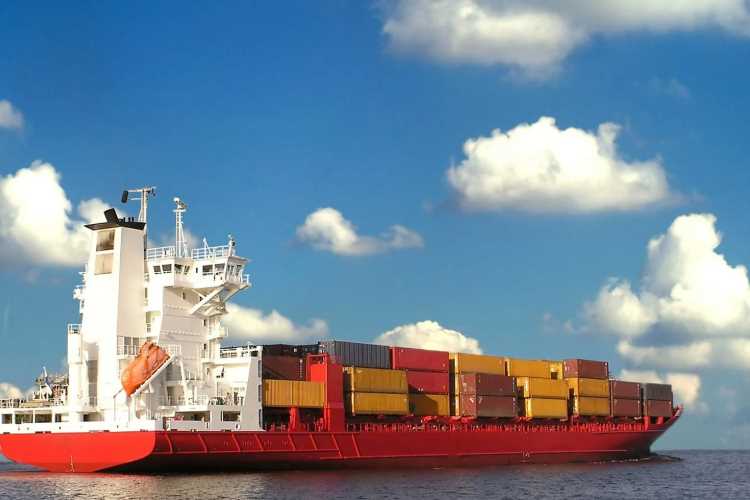As India and the UK engage in negotiations for a free trade agreement, it is evident that while the prospects for trade gains are promising, there are lurking challenges in the form of non-trade obligations that India should be careful about. The evolving dynamics in this bilateral economic partnership, with a total trade exceeding $43.5 billion in FY2023, call for a closer look at the nuances of the India-UK FTA.
The India-UK FTA signifies a strategic shift in India’s trade focus, redirecting its attention from the East to the West. This transition is not merely geographical but also thematic, as the FTA broadens its scope to encompass non-trade domains such as environmental standards, labour regulations, gender equity, digital commerce, and data governance, says a report by the Global Trade Research Initiative.
This move represents a significant departure from India’s earlier approach, which primarily concentrated on traditional market access issues such as merchandise and services trade. With negotiations spanning 26 different subjects, each comes with its unique set of implications, making this a multifaceted and challenging process.
READ | AI bias threatens evolution of fair and equitable technology
India-UK FTA and sustainability issues
One crucial aspect of the India-UK FTA is its sustainability dimension, particularly its potential effect on India’s garment industry. The agreement may introduce non-tariff barriers aimed at promoting sustainability. For India, it is essential to assess and address these provisions to ensure the industry’s stability and growth. Sustainability is a critical concern for India, and the impact on the garment sector must be thoroughly analysed. It may lead to challenges in meeting stringent sustainability criteria, potentially affecting India’s market access under the FTA.
India must also consider the looming introduction of a carbon border adjustment mechanism (CBAM) by the UK. The inclusion of such a mechanism in the FTA could have significant implications. While UK products continue to enter India duty free, Indian exports may face tariff equivalent to CBAM charges, ranging from 20% to 35%. Pre-emptive measures within the FTA must be taken to address this possibility. The CBAM’s potential impact on India’s exports and its ability to navigate these challenges will be of utmost importance in the negotiation process.
Focus on key negotiating tracks
The FTA negotiations encompass a wide range of subjects, each with its unique significance. Here is a closer look at some key areas:
While India’s high-quality, labour-intensive products stand to benefit from tariff removal by the UK, the overall gains may be limited since many Indian products already enjoy low or zero tariffs in the UK. India should strategically identify products with export potential and align tariff reductions accordingly to maximise the benefits.
India’s IT and business services, such as software exports, are poised to gain from the UK’s issuance of priority visas for Indian professionals. However, challenges may arise due to the UK’s concerns over immigration, particularly post-Brexit. A comprehensive approach to facilitate the movement of skilled professionals while addressing the UK’s immigration concerns should be a priority.
Rules of origin determine whether products from third countries qualify for FTA benefits. India may need to consider more flexible rules, especially as domestic industries increasingly rely on imported inputs. Striking the right balance between protecting domestic industries and promoting regional integration will be critical.
India should be cautious about conceding preferential treatment to UK suppliers in government procurement. Ensuring a level playing field for Indian firms in the UK market is essential. A careful evaluation of reciprocity and market access should guide India’s stance in this regard.
India must establish domestic rules and standards before committing to labour standards, gender, environment, digital trade, and IPRs under the FTA. Caution is needed to avoid commitments that could restrict future policy flexibility. Developing a comprehensive framework that aligns with India’s development goals and international standards will be essential.
Negotiating the terms of bilateral investment treaties is a separate challenge, especially regarding dispute settlement mechanisms. India’s insistence on exhausting local remedies before international arbitration may face resistance. India should carefully assess the implications of dispute settlement mechanisms to protect its sovereign interests.
Ensuring a balanced free-trade agreement
As the India-UK FTA negotiations near their conclusion, it is imperative that India maintains a balanced approach. While trade gains are important, India must protect its domestic standards, objectives, and interests. Committing to non-trade obligations without careful consideration could have far-reaching consequences. India should tread cautiously to ensure that this FTA serves its economic interests while safeguarding its sovereignty and flexibility in policy matters.
In the negotiations, a text addressing the participation of women and micro, small, and medium-size enterprises has been introduced. However, India must be vigilant to ensure that this text does not serve as a disguise for obtaining concessions in government procurement or services. A careful reading between the lines is essential to avoid taking onerous obligations on non-trade issues.
India should be cautious about reiterating international commitments under the FTA, especially those made at international forums like the International Labour Organisation (ILO) and COP26. While India respects these commitments as best endeavours, reiterating them in the FTA could transform them into binding and actionable obligations, limiting India’s policy flexibility.
Apart from the FTA, India is concurrently negotiating a new bilateral investment treaty with the UK. This introduces a distinct challenge, particularly concerning dispute settlement mechanisms. India’s preference for foreign firms to exhaust local remedies before resorting to international arbitration faces resistance due to the lengthy nature of Indian judicial proceedings. Striking a balance between investor protection and safeguarding India’s legal system’s integrity will be vital.
As India navigates the nuances of the FTA negotiations, it must meticulously assess and address these issues to ensure that the final agreement aligns with its economic and strategic interests. The FTA’s success will depend on India’s ability to balance its pursuit of trade gains with the preservation of its domestic standards and objectives. This careful balancing act is essential to protect India’s sovereignty and promote economic growth in the changing global trade landscape.

